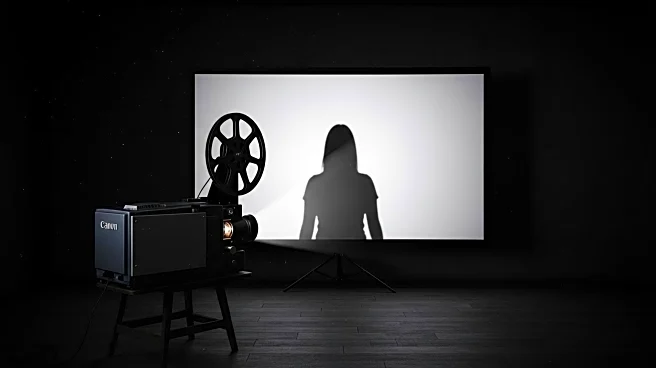What's Happening?
Charlie Kaufman, renowned for his work on films such as Eternal Sunshine of the Spotless Mind and Being John Malkovich, is making a return to genre filmmaking with a new short film titled How to Shoot a Ghost. The film is set to premiere on September 1st in Venice, Italy. The plot revolves around a recently deceased man and woman wandering the streets of modern Athens, Greece, capturing photos of passersby. The narrative explores themes of life and death, with the protagonists uncertain about their own states of being. Kaufman co-wrote the film with Canadian-Greek poet Eva H.D., whom he met at the MacDowell Artist Residency in New Hampshire. Eva, who spent much of her childhood in Athens, contributes to the film's setting, emphasizing the city's historical residue as a metaphorical backdrop for the ghostly tale.
Why It's Important?
Charlie Kaufman's return to genre filmmaking is significant for the film industry, as he is known for his unique storytelling and exploration of complex themes. His new project, How to Shoot a Ghost, promises to offer a fresh perspective on the concept of life after death, potentially influencing future genre films. The collaboration with Eva H.D. highlights the importance of cross-cultural partnerships in filmmaking, bringing diverse narratives and settings to the forefront. This film could also impact streaming services, as Kanopy has joined as a producer, suggesting potential availability for wider audiences post its European premiere.
What's Next?
Following its premiere in Venice, How to Shoot a Ghost may become available for streaming through Kanopy, allowing broader access to Kaufman's latest work. The film's reception could influence Kaufman's future projects and collaborations, possibly encouraging more genre explorations. Additionally, the film's unique setting and narrative might inspire other filmmakers to explore similar themes and settings, contributing to a broader trend in genre filmmaking.
Beyond the Headlines
The film's exploration of Athens as a setting for ghostly narratives touches on deeper cultural and historical themes. Eva H.D.'s perspective on the city's historical residue as metaphorical ghosts invites audiences to consider the impact of past regimes and cultural shifts on contemporary life. Kaufman's philosophical musings on life after death challenge traditional notions of rest and consciousness, prompting viewers to reflect on existential questions.










